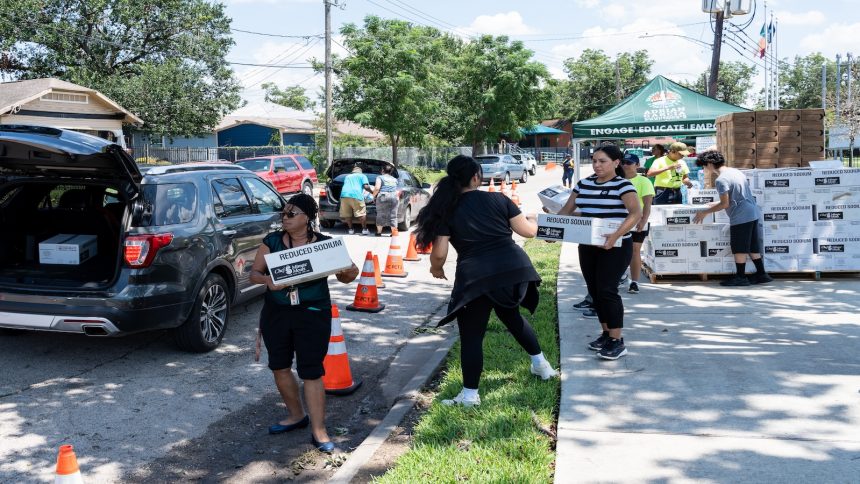In the aftermath of Hurricane Beryl, relief organizations are working tirelessly to ensure that people along the Gulf Coast stay fed amidst the widespread destruction and ongoing outages. The storm caused catastrophic damage, leaving millions without power and facing brutal heat and humidity. Local churches, supermarkets, and soccer stadiums have stepped up to provide meals and distribute groceries to those in need.
The Houston Food Bank and other organizations have mobilized resources to address the hunger crisis caused by the storm. Feeding America has deployed refrigerated trucks to distribute food, while the federal government has approved additional SNAP benefits for those affected. However, access to food remains a challenge for vulnerable populations, including the elderly, immigrants, and families with children.
Disasters like Hurricane Beryl exacerbate existing food insecurity issues, particularly for communities of color and low-income households. Emergency food relief efforts are crucial in the immediate aftermath of a crisis, but more comprehensive long-term solutions are needed to address the underlying factors driving hunger. It is essential that disaster response plans include efforts to foster equitable food access and support vulnerable communities in the long term.






